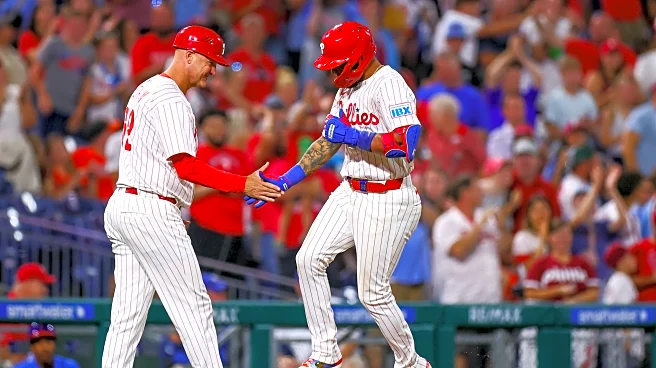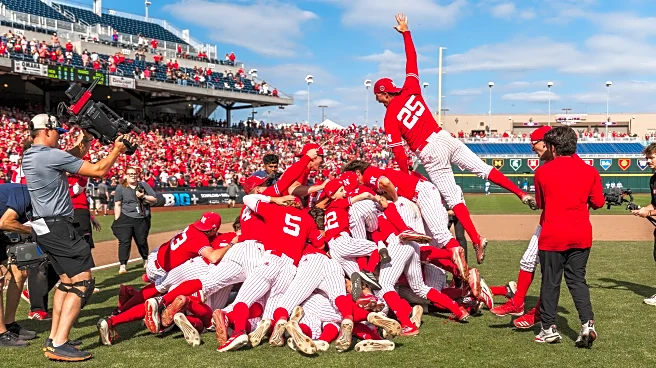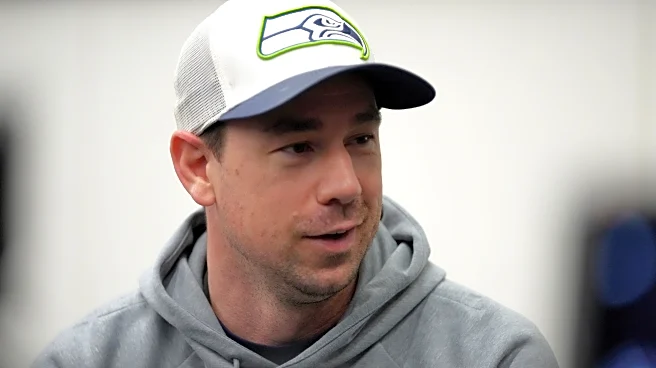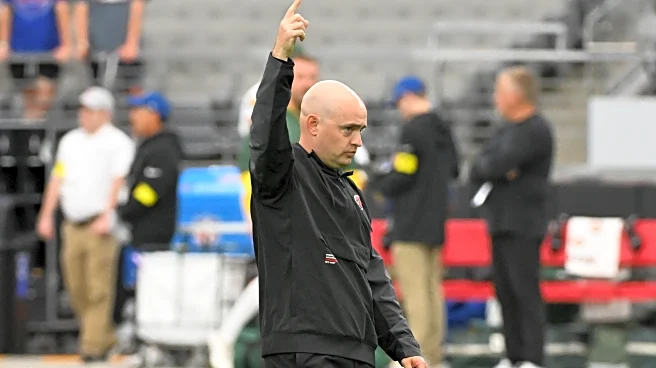What's Happening?
Chris Paul, playing for the Los Angeles Clippers, delivered an impressive performance in a preseason game against the Sacramento Kings. Paul contributed eight points, ten assists, one rebound, and one steal
during his 18 minutes on the court, leading the Clippers to a 109-91 victory. This game marks a significant moment for Paul, who is expected to end his career with the Clippers, a team where he has established himself as one of the NBA's top point guards. Despite not being a regular starter, due to the presence of James Harden, Paul is anticipated to play a crucial role in the second unit, potentially earning recognition as the Sixth Man of the Year.
Why It's Important?
Chris Paul's performance is significant for the Clippers as they prepare for the upcoming NBA season. His ability to contribute effectively off the bench provides the team with depth and versatility, which is crucial for maintaining competitiveness throughout the season. Paul's playmaking skills enhance the team's offensive capabilities, offering strategic advantages during games. His potential candidacy for the Sixth Man of the Year award underscores his value to the team, highlighting the importance of experienced players in supporting team dynamics and achieving success.
What's Next?
As the NBA season progresses, Chris Paul's role with the Clippers will be closely monitored. His contributions off the bench will be vital in maintaining the team's performance, especially if key players like James Harden face injuries or require rest. The Clippers will likely leverage Paul's experience and skills to navigate the challenges of the season, aiming for a strong playoff position. Fans and analysts will watch how Paul's presence influences the team's overall strategy and success.
Beyond the Headlines
Chris Paul's career trajectory with the Clippers reflects broader trends in the NBA, where veteran players are increasingly valued for their leadership and ability to mentor younger teammates. His potential impact as a Sixth Man highlights the evolving role of experienced players in shaping team dynamics and contributing to long-term success. This development may influence how teams structure their rosters, prioritizing a mix of seasoned and emerging talent.


![Daily Slop: 12 Feb 26 – New Commanders OC David Blough: “How do we get Terry [McLaurin] 10 targets a game?“](https://glance-mob.glance-cdn.com/public/cardpress/binge-magazine-card-generation/spaces/US/en/sb-nation/images/ppid_2cf3d240-image-177091266842313096.webp)






